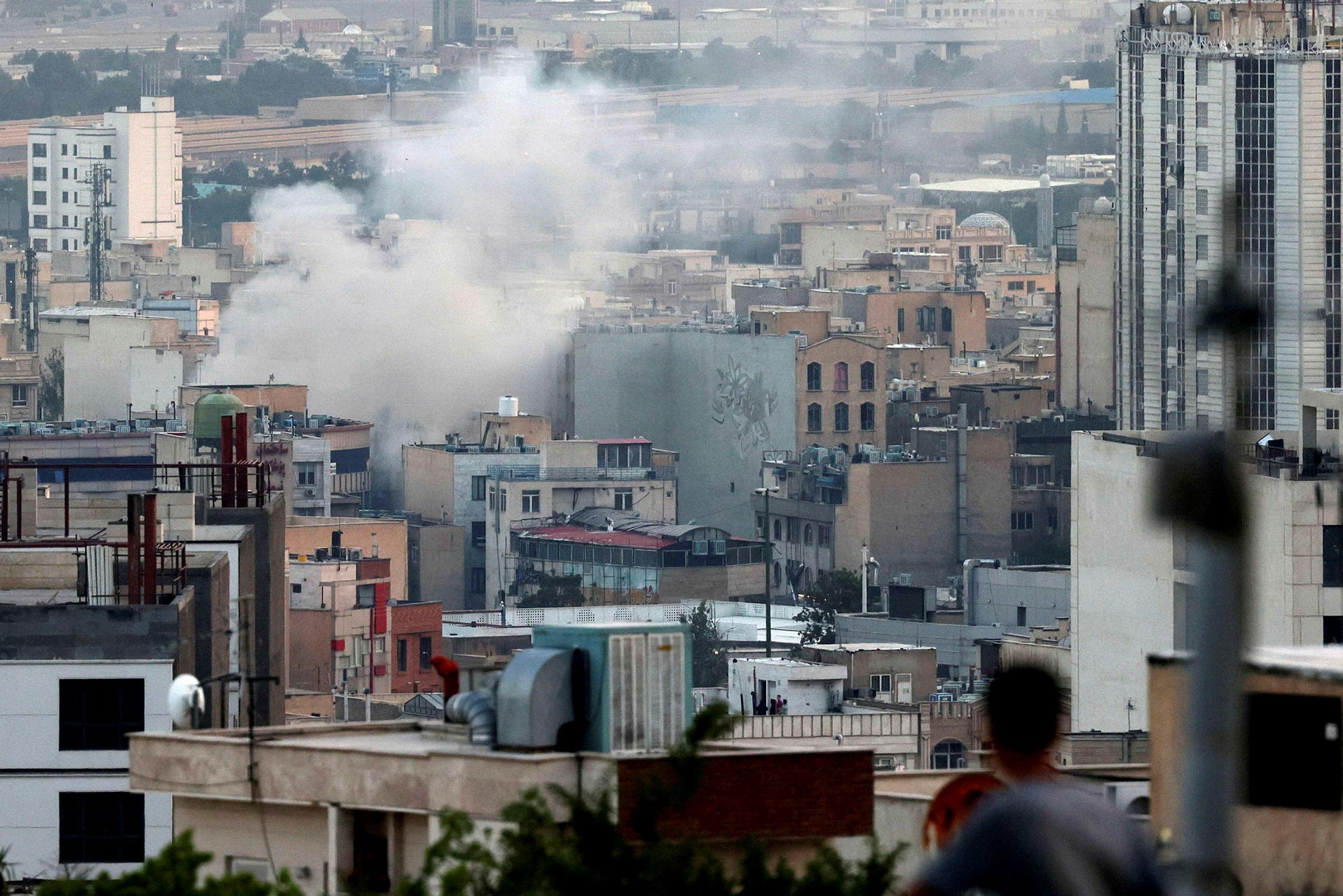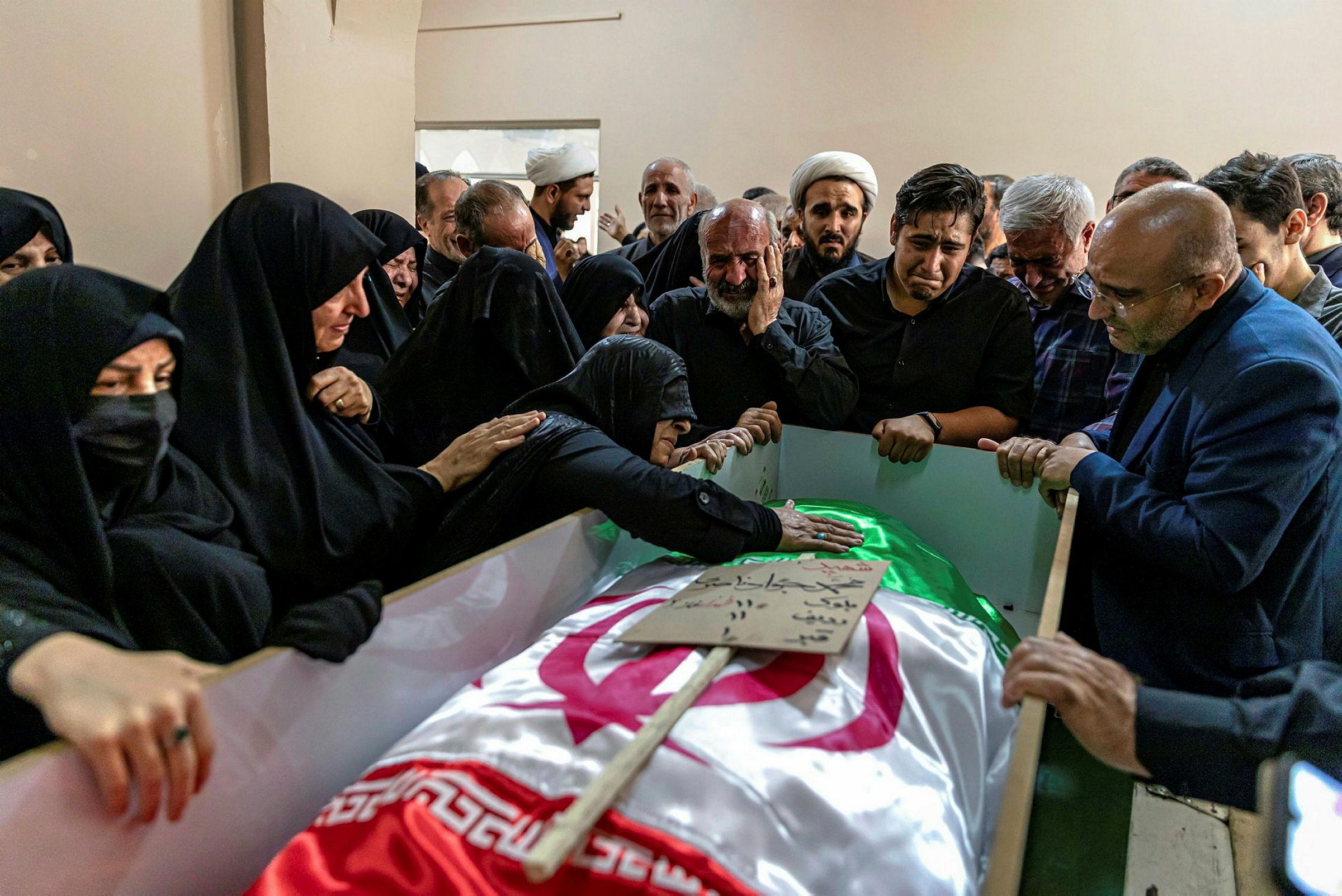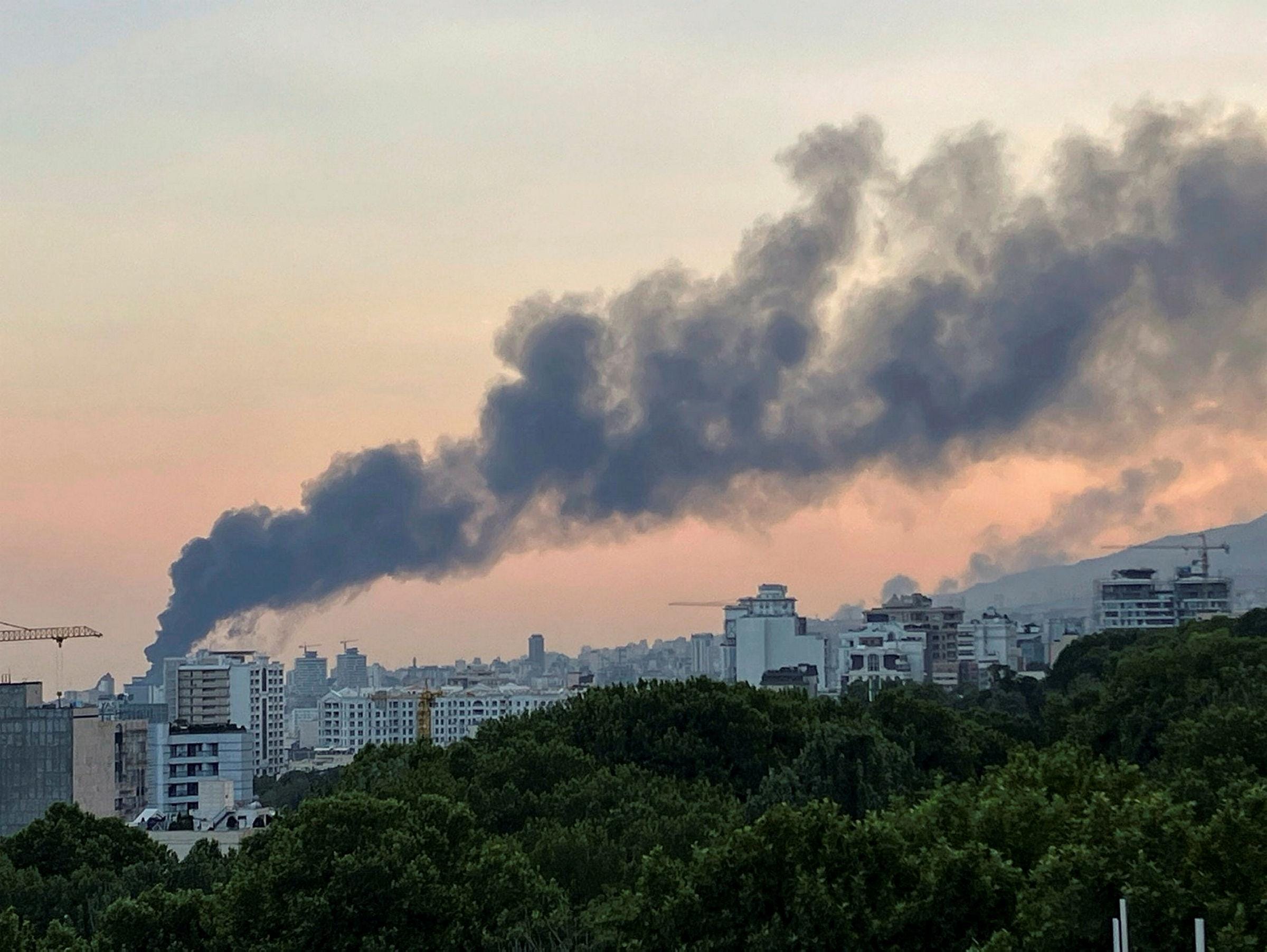Israel's Ambition to Overthrow Iran's Regime Risks Turning into a Haunting Nightmare
Israel's Dream of Taking Down the Iranian Regime Could Quickly Become a Nightmare
While Prime Minister Benjamin Netanyahu considers toppling Iranian Supreme Leader Ayatollah Ali Khamenei, he must first consider the many alternative leaders in Tehran who will do anything to survive
June 17th, 06AM June 17th, 06AMSeveral times over the last year, Prime Minister Benjamin Netanyahu has appealed to Iranians to topple their regime and rid themselves of the murderous dictatorship that spends billions of dollars on its proxies – "money the country could have used to improve its transportation system." He even used the slogan of the women's rights movement that arose in 2022 – "women, life, freedom" – to make Iranians identify with the mission he has taken upon himself for their sake.
The son of Iran's last shah, Reza Koresh Pahlavi, also wants Israel to topple the regime. He tells anyone who is willing to listen that Iran has many powerful forces within it willing to work to bring the regime down (and in the process place a crown on his head).
Remnants of the Green Movement that arose during the 2009 presidential election won by Mahmoud Ahmadinejad similarly want to see the downfall of Iran's Supreme Leader Ayatollah Ali Khamenei and his mechanisms of tyranny and oppression. Two of the key figures in this regard had been under house arrest since 2009: Mehdi Karroubi, who has finally been released, and his colleague Mir-Hossein Moussavi, who ran in the election that year.
In addition, across the border, the Mojahedin-e-Khalq (MEK) is waiting. Though today it is a militant opposition movement, back in 1979, it helped then-Supreme Leader Ayatollah Ruhollah Khomeini carry out the Islamic Revolution, including persecuting and even murdering its opponents. But MEK was later forced out by Khomeini, who thought it could pose a threat to him. He wasn't wrong.
According to foreign reports, MEK has for years helped Israel's operations in Iran. It seeks to take part in whatever new regime is to be established there. This will involve implementing some of the group's own principles, which don't actually fit in with Western democracy.
The West is familiar with the vague term "reformists" – a very broad umbrella covering anyone seeking change in Iran. Moussavi is not only a reformist, but perhaps even a symbol for all Iran's reformists. Yet in the past, he has made it clear that he doesn't support Western-style democracy and opposes foreign intervention in Iran's affairs.
Another reformist is former Iranian President Hassan Rohani, who signed the original nuclear deal in 2015 and supported dialogue with the West. But he opposed changing the foundations of the regime, which is based on Islamic law and clerics' interpretations of it.
There are also clerics who bear the title of reformists. One even served as president – Mohammad Khatami, who froze Iran's nuclear program on the eve of America's second war with Iraq in 2003, but then restarted it after then-U.S. President George W. Bush didn't accede to his proposal for negotiations over the program.
The broad spectrum of reformists, the people who would supposedly be the backbone of any regime change, obviously also includes the intellectuals, students and human rights organizations that participated in mass demonstrations like the ones sparked by the Green Movement or those of 2019 and 2022. These were major events, and every time they happened, they produced confident predictions that the regime was about to collapse.
But every time, they were confronted by powerful, violent armed forces that have no restraints – the Revolutionary Guards, the "civilian" police and the hundreds of thousands (some say millions) of "volunteers" in the Basij militia, who are often seen at demonstrations waving their fists and shouting "death to America" and "death to Israel." They are the ones who break up demonstrations and strikes, the sharpened spear hurled at the public whenever the regime feels threatened.
The governing apparatus includes movements, forces and organizations that, for decades, enjoyed prestige and a great deal of money. They will therefore do everything in their power – and that's quite a bit – to preserve their governmental hothouse. Among them are senior clerics who sit on the councils and committees that approve the candidacies of members of parliament, presidents and whoever is chosen as Iran's next supreme leader.

This is a multi-layer bureaucratic machine that controls every branch of the government. It's a structure ostensibly erected on a democratic foundation, in which the public elects the president, members of parliament and municipal governments. But each such election is subject to strict screening of candidates, many of whom are disqualified, and there is ongoing supervision of the winners by the supreme leader.
Alongside the elected officials are the government-funded institutions, the army, the Revolutionary Guards, the police, the justice system and the ministers, whose appointments are ostensibly subject to the elected parliament's approval but in practice to the supreme leader's orders.
Thus, should Israel assassinate Khamenei, it would not ensure the collapse of all these powerful systems, and could furthermore set off a succession battle that may result in much more devastating repression.
It's somewhere between difficult and impossible to know when a civil uprising will erupt in Iran, even when clear signs of its feasibility exist. No intelligence agency was able to predict when the Soviet Union fell apart; none of them knew if or when the Arab Spring revolutions erupted; none of them knew the Assad regime in Syria would crumble the way it did.
Those are just a few of many examples. But they should suffice to understand that similarly, the hope of toppling the Iranian regime currently rests on wishful thinking fed by the pictures emerging from Iran.

In this context, it's worth recalling that Iran waged an existential war against Iraq for eight years, that it survived under a very stringent sanctions regime following the Islamic Revolution and that it has survived a deep, chronic economic crisis that would have toppled the government in most countries. And not only did Iran survive all this, but it also developed sophisticated technology and advanced weaponry while continuing to sell oil and other goods.
Netanyahu told the Iranians and the world that "the situation in the Middle East is the result of a chain of reactions, a response to the blows suffered by Hamas, Hezbollah's collapse and the assassination of [former Hezbollah Secretary-General] Hassan Nasrallah. These are the strikes that we wielded against the axis of evil. While Iran looks to take over other countries to impose their fundamentalist tyranny, Israel seeks only to protect itself, and in the process protect civilization against barbarism."
That's an appealing analysis, but it doesn't guarantee that toppling the Iranian regime is possible in the same way former Syrian President Bashar Assad was toppled or Hezbollah was weakened. It's also worth recalling that even after Assad fell, Netanyahu didn't rush to embrace the man who brought him down and then became the new president – Ahmad al-Sharaa, "the terrorist." Nor did he extend a hand to the Lebanese government after Nasrallah was assassinated.

Washington also believed that after it brought down former President Saddam Hussein in Iraq, the Tigris River would overflow with joy and people would celebrate democracy in the streets of Baghdad. What actually happened is well known. And in that case as well, there were high-level opposition figures living in London and Paris who, before the war, promised the Americans not only total victory over the murderous tyrant, but also a victory for Western democracy.
Fighting Iran in order to defend Israel is a huge job in its own right. It doesn't need to be furthered burdened by holy missions like defending civilization.
Moreover, assassinating Khamenei and a long list of other senior Iranian officials will not guarantee that what replaces them would be any better. Iran's own history is proof of this. In 1979, millions took to the streets, ousted the shah and "crowned" Khomeini.
Toppling the Iranian regime is currently just a dream. But it has become a strategic goal despite there being no proof that it is achievable. And even if this goal is reached, there is no guarantee that the result won't be an even more dangerous nightmare.
Post a Comment for "Israel's Ambition to Overthrow Iran's Regime Risks Turning into a Haunting Nightmare"
Post a Comment